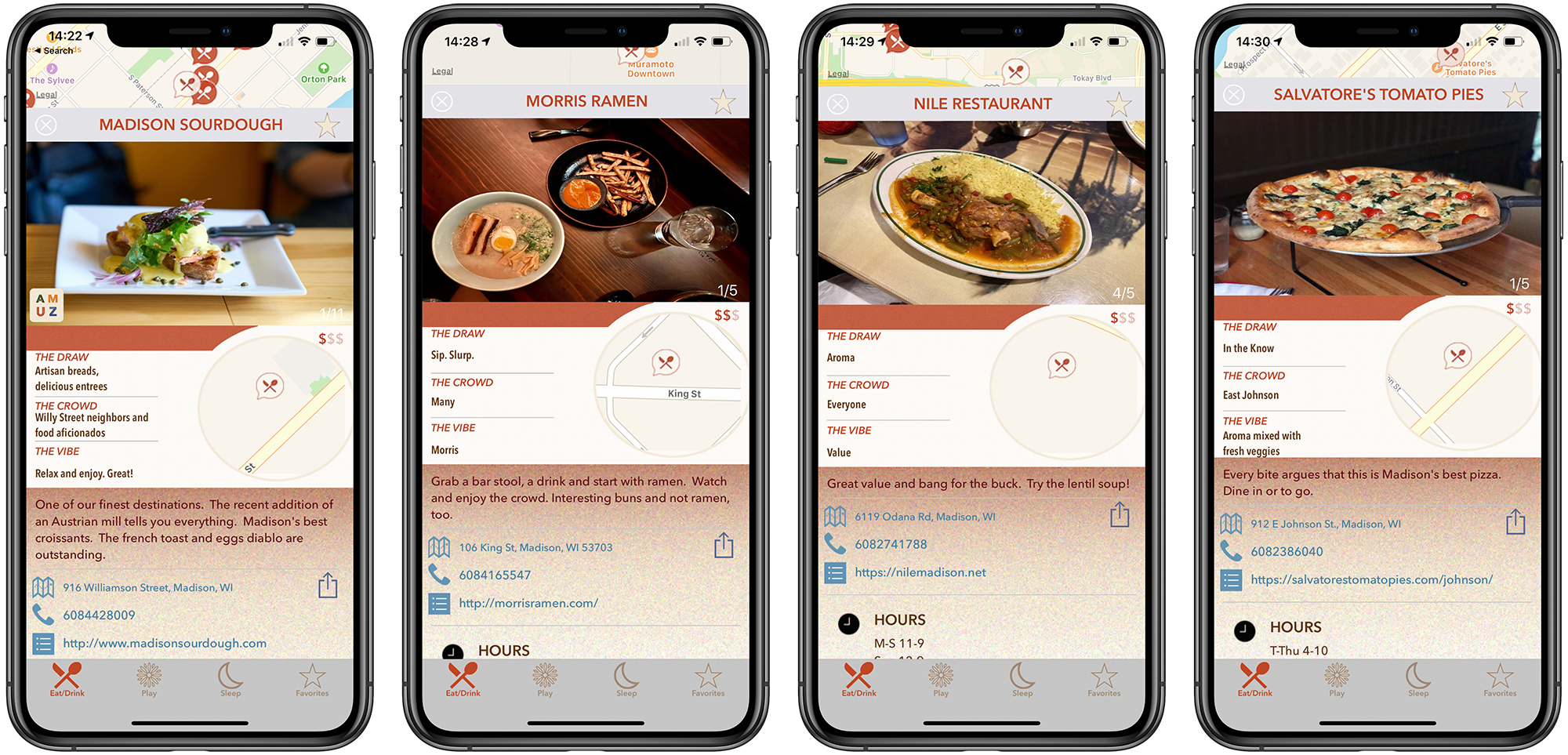Getting restaurant information from Grubhub, EatStreet or Uber Delivery?
There is a better way. Explore Madison and the world with the amuz app: iPhone/iPad Android.
Issue:
“We didn’t give them permission to put us on their platform and we don’t deliver for a reason,” said Le. “If a customer has ordered it, we don’t want to refuse something that has been paid for. But we’re trying to stop having our menu on these platforms.”
As Wisconsinites hibernate on frigid winter weeknights, demand for delivery naturally ticks up. Over the past few weeks, restaurateurs across Madison have been raising a chorus of frustration over the tactics of third-party delivery companies like DoorDash, Grubhub and Postmates.
In an attempt to acquire more market share and prove demand, some delivery companies scrape menus from restaurant websites and post them online without the restaurant’s consent or knowledge. This has led to bad feelings all around — diners upset that their food is cold, wrong or late, restaurants feeling duped and taken advantage of.
“We can only manage the business that we know about,” said Le. “If the delivery is a third party service, we don’t have any control or knowledge of what’s going on with the food when it leaves our restaurant.
“I don’t think anybody all of a sudden wants to find out they’re in an unknown partnership.”
Digital background
US court legalized website scraping [2]:
The decision was made during the trial of LinkedIn (owned by Microsoft) against a small data analysis company called hiQ Labs.The Wisconsin State Journal has posted images from Yelp users, as well. [3]
HiQ linked data from publicly available LinkedIn user profiles and then used it to consult employers whose employees posted their resumes on the site.
LinkedIn has tolerated hiQ activity for several years, but in 2017 sent the company a request (a cease-and-desist letter) to stop automated data collection from profiles. Among other things, LinkedIn claimed that hiQ violated the computer fraud and abuse act (CFAA), the main American law against hackers. Adopted more than 30 years ago, this law prohibits “access to a computer without authorization or with exceeding access rights.”
Outcomes:
- Delivery app purchasers expect a great product and receive cold food.
- Restaurants lose control of their brand experience
- Food delivery aggregators increase their "Total Addressable Market" or TAM. A larger addressable market is fodder for fund raising, valuation and marketing rhetoric along with fee opportunities.
- Google, the most popular search and advertising engine, copies much of the world wide web, email, android and other related activity. Google services are generally built on other people's data, including Yelp. [4]
amuz:

Update: Up to 91% More Expensive: How Delivery Apps Eat Up Your Budget [1] Grubhub bubbub (and Eatstreet among others)
[2] Parsers case summary.
[3] The top 25 Madison restaurants of the decade according to Yelp.
[4] Yelp Accuses Google of Stealing Its Content Again